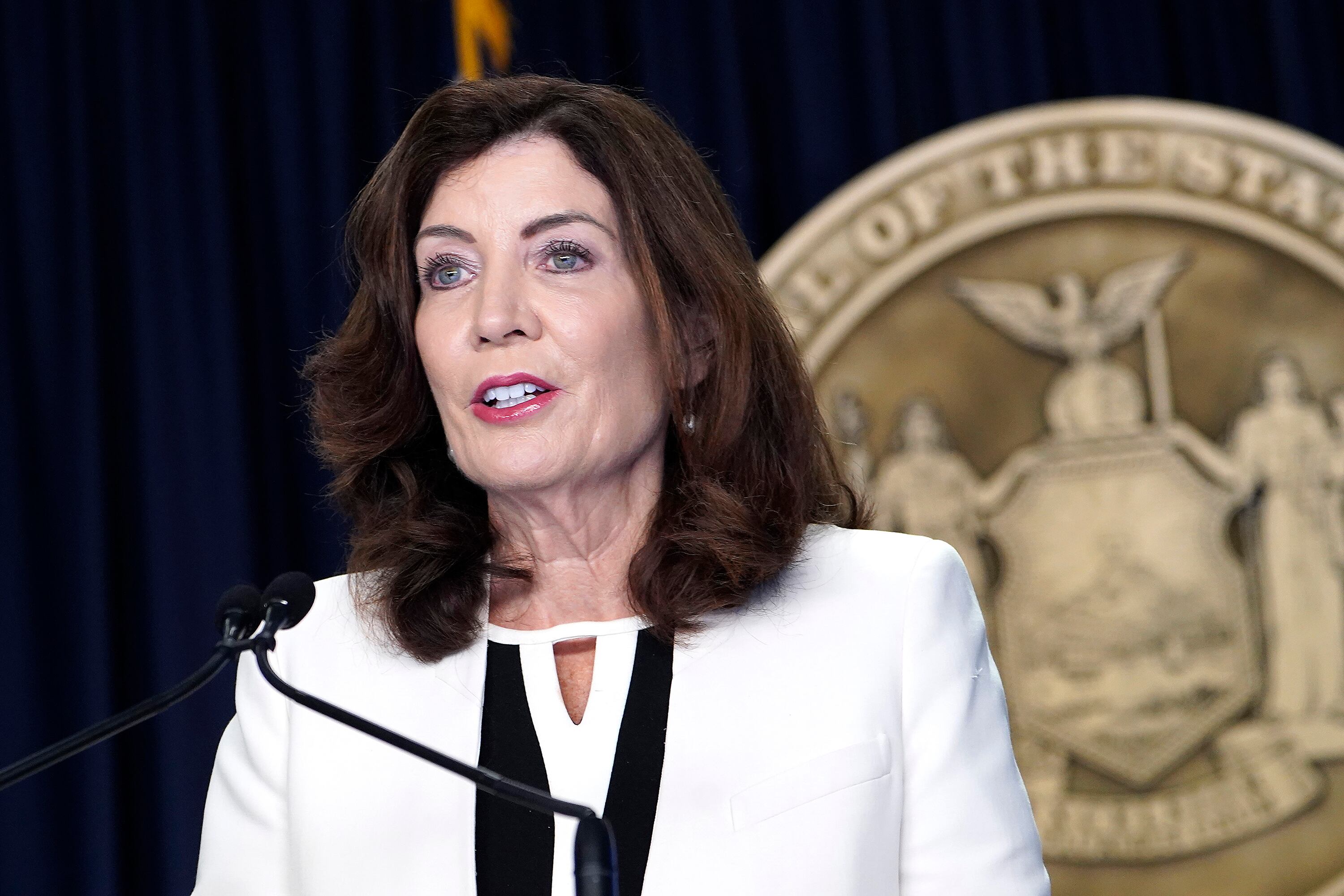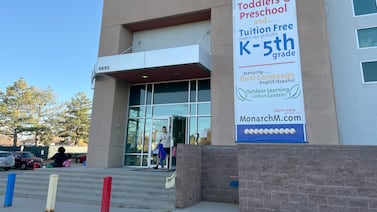Sign up for Chalkbeat New York’s free daily newsletter to keep up with NYC’s public schools.
Gov. Kathy Hochul said a preliminary budget agreement would allocate roughly $35.9 billion to New York schools — a record high — as state lawmakers closed in on a deal on Monday.
Though Hochul announced “the parameters of a conceptual agreement” on a $237 billion state budget, she said that Albany leaders had not yet finalized negotiations over mayoral control. Hochul told reporters she was pushing to extend New York City’s 20-year-old governance model — a move that would keep Mayor Eric Adams at the helm of the nation’s largest school system.
“There’s still time to see if we can get this worked out,” she said. “There’s a lot of complications with that.”
The city’s school governance structure, which expires on June 30, gives the mayor the power to select a schools chancellor and appoint a majority of members to the Panel for Educational Policy, or PEP, a city board that votes on major policy proposals and contracts. In a budget proposal earlier this year, Hochul had called for a four-year extension of mayoral control.
In 2022, lawmakers struck a deal to extend mayoral control for two years, despite Hochul pushing for a longer extension.
For months, lawmakers have argued the future of the city’s polarizing school governance structure should be determined outside of the budget process. But during last-minute negotiations on the two-weeks-late budget, the possibility of extending mayoral control reentered discussions.
“We have had some very positive conversations, but obviously, the devil’s in the details,” Hochul said. “So that’s why I’m being very careful and saying that this is a conceptual agreement, not the entire budget.”
In a statement, State Sen. John Liu, a Queens Democrat who chairs the Senate’s New York City education committee, said, “The governor is pushing the issue in budget negotiations and a short-term extension of mayoral control may be included along with stronger accountability measures for meeting class size requirements.
“The mayor wants what he calls mayoral accountability,” he said. “So he should agree to being held accountable.”
Adams praised the preliminary budget agreement in a statement and said, “We will continue to fight for New Yorkers on crucial issues, especially preserving mayoral accountability as we advocate to support public school children and families.”
Schools to see $1.3 billion increase in funding
The looming budget agreement would represent a $1.3 billion increase in school aid, allocating roughly $500 million more to New York’s schools than Hochul proposed earlier this year, according to figures she shared on Monday.
It’s the highest level of school aid in history, and comes as the governor and lawmakers have clashed over the state’s funding formula.
Hochul’s earlier proposal included two controversial changes to Foundation Aid, the state formula that calculates how much funding each school district receives and sends more dollars to higher-need districts. The adjustments proposed altering how the formula accounted for inflation and modifying a provision that prevented districts who saw enrollment drops from losing money.
That prompted pushback from some lawmakers and advocates who argued against changing the formulas at a time when the city’s schools and districts across the state face the end of billions of dollars in one-time federal COVID relief funds, which are set to dry up in September.
Hochul noted Monday that the budget deal would include an adjustment to how the formula accounts for inflation, but added the latter of her proposed changes would not go into effect.
“If left unchecked, the formula would have grown roughly 5%,” said Blake Washington, the state’s budget director. “Instead, it’s going to grow approximately 2.8%.
Meanwhile, the state’s Education Department will partner with the Rockefeller Institute to conduct a longer term examination of Foundation Aid with hopes of changing the formula next year, Hochul said.
“State law requires us to keep everybody at the same level every year, regardless of whether they’ve had population loss or whether their needs have changed,” she said. “There’s got to be a better way.”
The state budget will also allocate $19 million to new mental health supports for children and expand the state’s Tuition Assistance Program, according to Hochul.
Julian Shen-Berro is a reporter covering New York City. Contact him at jshen-berro@chalkbeat.org.







